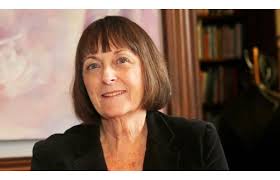By Margaret Somerville
 |
| Margaret Somerville |
Canadian Medical Association exaggerates its support for conscience rights.As an academic medical ethicist at McGill University in Montreal for nearly four decades and now living and working in Australia, I am concerned that Australian legislatures, which are currently considering whether to legalize physician-assisted suicide and euthanasia, might accept the picture presented in these articles, without identifying their deficiencies.
In focusing only on respect for the autonomy and relief of the suffering, of an individual, personally identified, educated, mentally competent patient who requests and gives informed consent to MAiD, Dr Buchman makes the strongest case possible for the ethical acceptability of euthanasia and its legalisation. But, apart from other concerns, generalizing even these justifications beyond Dr Buchman’s patient and his specific characteristics and circumstances raises problems. In reality, how many people requesting euthanasia or assisted suicide (MAiD) will have the intensive attention, medical and family support Dr Buchman describes, or be as informed, articulate and highly educated as this patient, who himself was a doctor?
Respect for individual autonomy is used, as Dr Buchman does, by pro euthanasia advocates as a justification for legalizing MAiD. But it is far from the only consideration which needs to be taken into account, even if one does not object to MAiD on the most fundamental basis that we should not authorise anyone, let alone doctors, to intentionally inflict death on other human beings.
Dr Buchman makes no mention of any such considerations, in particular, risks and harms to the “common good” and society. These include breaches of the value of respect for human life at both the individual and societal levels, and serious physical and existential risks and harms to vulnerable people, especially those who are disabled and fragile elderly people.
Whether we agree or disagree with MAiD, we can all agree with Dr Buchman’s goal of relief of suffering, but we must kill the pain and suffering, not the person with the pain and suffering.
Dr Blackmer’s article raises a wide range of important issues, which he does not identify. They include: Is MAiD medical treatment? It can be argued that it is not. Likewise, MAiD is not, as its promoters argue, just a legitimate incremental extension of “good palliative care”. The informing philosophies of MAiD and palliative care are in conflict. Palliative care is based on a commitment to help people to live as fully as possible until they die a natural death. The informing principle of MAiD is that it is ethical to intentionally inflict death to relieve suffering or even the fear of future suffering.
Whether to legalize MAiD is a societal and political decision, not primarily a medical one and it’s suggested that if a society wants it to be available and legalizes it, for many reasons, it should be kept out of medicine. I call this “taking the white coat off euthanasia”.
By embracing euthanasia and assisted suicide as medical treatment the CMA made physician participation an expectation and refusing to provide them became an exception requiring justification. Despite assurances from the CMA leadership, Canadian doctors who object to participation in “therapeutic homicide” now risk discipline and even expulsion from the medical profession.
Euthanasia has been rapidly normalized and routinized in Canada at a rate that even one of its strongest advocates, Dr Yves Robert, registrar of the College of Physicians of Quebec, has found alarming, in that it has quickly become just another choice of how to die.
Not everything that is legal is ethical. So, the Canadian Medical Association could have maintained its long-established stance -- which reflects almost 2,500 years of medical ethics wisdom -- that it is unethical for physicians to participate in MAiD, even though it is now legal in Canada. When the cloak of medical approval is absent, the public are much more likely to question the wisdom of legalizing it.
Finally, while the CMA might be neutral with respect to who may be a member, in that it accepts as members both physicians who are pro-MAiD and those who are anti-MAiD, there is not, as Dr Blackmer claims, any “neutral stance” on the ethical acceptability of MAiD. In not continuing to oppose physicians’ involvement in it as unethical, the CMA is unavoidably supporting it in some or other form, which is not a neutral position. In fact, we can see precisely that outcome in the use of CMA statements by Canadian courts, legislatures and regulators in promulgating and implementing the law legalizing MAiD in Canada.
In short, there is no neutral stance on the ethics of MAiD but a clear choice to be made as to whether one is for or against it, as the present conflict among Canadian physicians so clearly demonstrates, despite the CMA’s and Dr Blackmer’s desire to whitewash the situation.
Margaret Somerville is professor of bioethics in the school of medicine at the University of Notre Dame Australia. This article was originally published in the BMJ Rapid Responses online.


1 comment:
Thank you Margaret for your intelligence and clarity. I live in Alberta Canada. I found last year that it is not easy to go about finding a new family physician if your criteria include a young physician who is philosophically opposed to "medical aid in dying". Many established physicians are not taking new patients. The website that indicates which physicians do accept does not indicate and I was told that often medical office assistants may not be able to answer about their physician's stance. I did not want to go to many "meet-and-greets" and settled for a Catholic physician who was not opposed to referring patients but showed some hope of gradually developing more understanding of the ethics involved.
Post a Comment